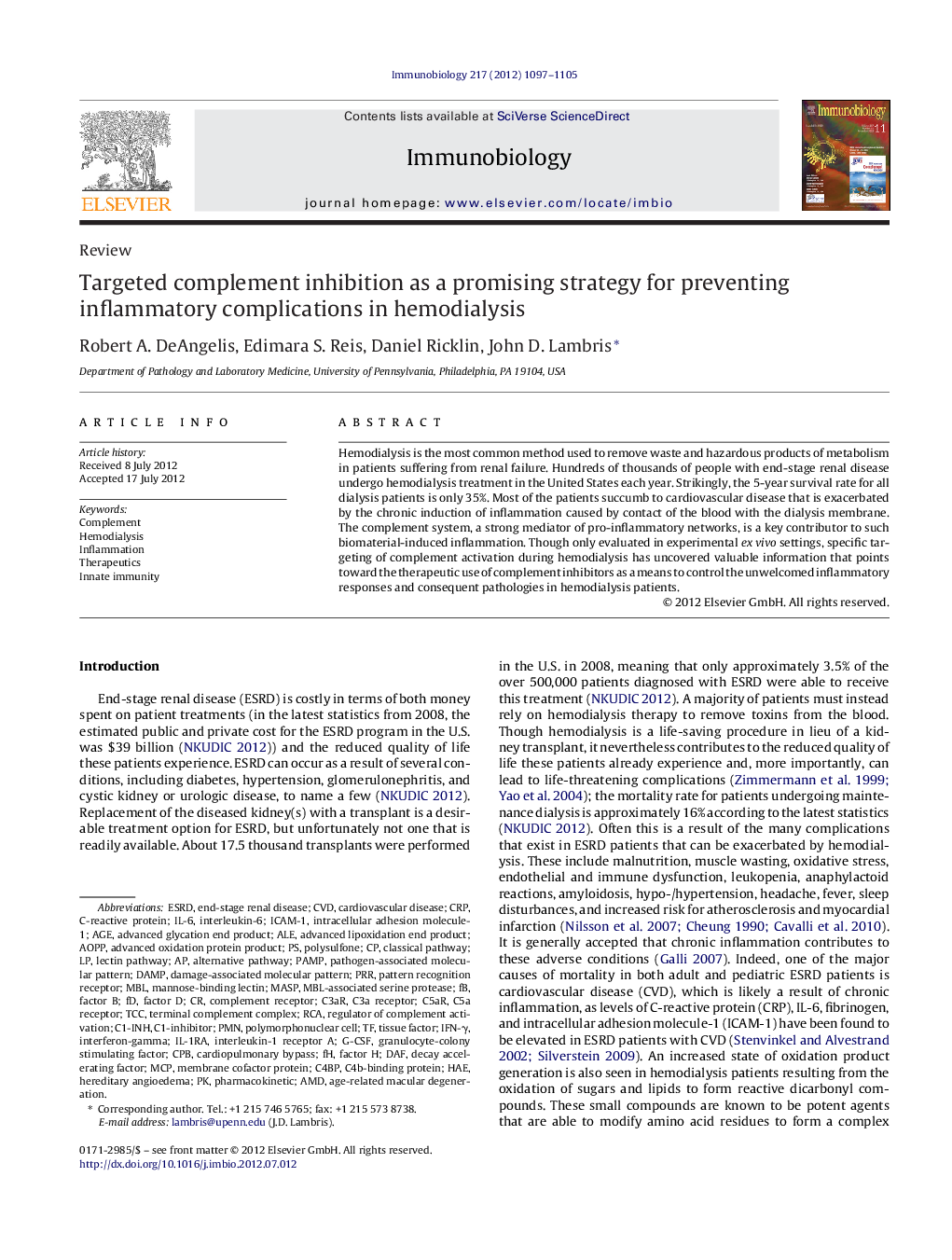| Article ID | Journal | Published Year | Pages | File Type |
|---|---|---|---|---|
| 2183294 | Immunobiology | 2012 | 9 Pages |
Hemodialysis is the most common method used to remove waste and hazardous products of metabolism in patients suffering from renal failure. Hundreds of thousands of people with end-stage renal disease undergo hemodialysis treatment in the United States each year. Strikingly, the 5-year survival rate for all dialysis patients is only 35%. Most of the patients succumb to cardiovascular disease that is exacerbated by the chronic induction of inflammation caused by contact of the blood with the dialysis membrane. The complement system, a strong mediator of pro-inflammatory networks, is a key contributor to such biomaterial-induced inflammation. Though only evaluated in experimental ex vivo settings, specific targeting of complement activation during hemodialysis has uncovered valuable information that points toward the therapeutic use of complement inhibitors as a means to control the unwelcomed inflammatory responses and consequent pathologies in hemodialysis patients.
